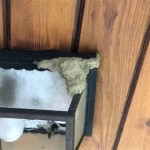How to Stain and Seal Wood for Outdoor Use
Staining and sealing wood for outdoor use is an essential step to protect it from the elements and extend its lifespan. Whether you're building a deck, fence, or outdoor furniture, using the right techniques and materials ensures your wood will look its best and last for years to come.
In this comprehensive guide, you'll learn the crucial aspects of staining and sealing wood for outdoor use. We'll delve into the importance of proper preparation, selecting the right stain and sealer, and the step-by-step process for achieving a durable and beautiful finish.
1. Preparation: The Foundation for a Lasting Finish
Thorough preparation is paramount before staining and sealing wood. Start by cleaning the wood surface with a deck cleaner to remove dirt, mildew, and any existing finishes. Rinse the surface and allow it to dry completely.
Next, sand the wood with a fine-grit sandpaper to smooth the surface and open up the pores. This will help the stain and sealer penetrate better and adhere more effectively.
2. Choosing the Right Stain
Wood stains enhance the natural beauty of the wood while providing protection. Select a stain that complements the wood species and your desired outcome. There are two main types of stains:
- Transparent stains: They allow the wood grain to show through, enhancing its natural color.
- Solid-color stains: They provide a more opaque finish, concealing the wood grain and creating a uniform color.
Consider the durability and intended use of the wood when choosing a stain.
3. Selecting the Sealer: The Protective Barrier
After staining, applying a sealer is essential to protect the wood from the elements and seal in the stain. Choose a sealer that is compatible with the type of stain you used.
There are two main types of sealers:
- Film-forming sealers: They create a protective layer on the surface of the wood, shielding it from moisture and UV rays.
- Penetrating sealers: They soak into the wood, enhancing its resistance to moisture and rot.
Select a sealer that provides the level of protection you need for your outdoor project.
4. Step-by-Step Staining and Sealing
Once you have chosen the stain and sealer, follow these steps for a professional finish:
- Apply a light, even coat of stain to the wood. Allow it to penetrate for the recommended time.
- Wipe off excess stain with a clean cloth.
- Allow the stain to dry completely.
- Apply the sealer according to the manufacturer's instructions.
- Allow the sealer to dry completely.
- If desired, apply a second coat of sealer for increased protection.
5. Maintenance: Preserving Your Outdoor Oasis
To keep your stained and sealed wood looking its best, regular maintenance is crucial. Inspect your wood regularly for signs of wear and tear, such as chipping, peeling, or fading.
Re-apply sealer as needed to maintain a protective barrier and prevent moisture damage. If necessary, touch up any areas with stain.
By following these essential aspects of staining and sealing wood for outdoor use, you can create a durable and visually appealing outdoor space that will withstand the elements and last for years to come.

How To Seal Wood For Outdoor Use Diy

Best Exterior Sealers For Your Outdoor Spaces The Home Depot

How To Seal Wood For Outdoor Use Extreme

How To Seal Furniture So It S 100 Waterproof Durable Wood Sealer Lily Ardor

Waterproof Wood With These Simple Methods

Best Exterior Sealers For Your Outdoor Spaces The Home Depot

How To Waterproof Wood With Oil Sealant Or Stain And Sealer Bob Vila

6 Ways To Treat Wood For Outdoor Use Pine And Poplar

6 Ways To Treat Wood For Outdoor Use Pine And Poplar

Non Toxic Wood Sealing A Definitive Guide
Related Posts







